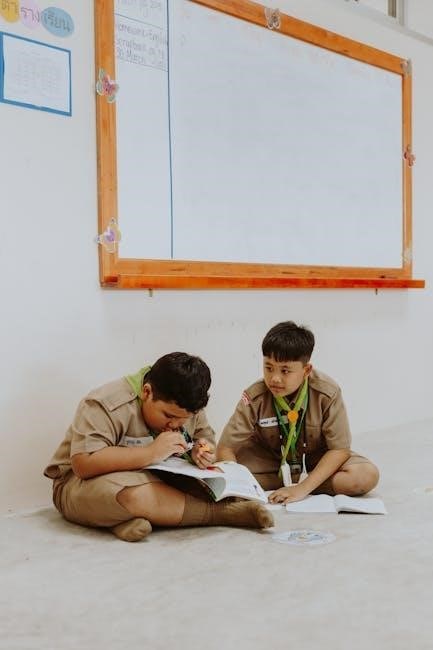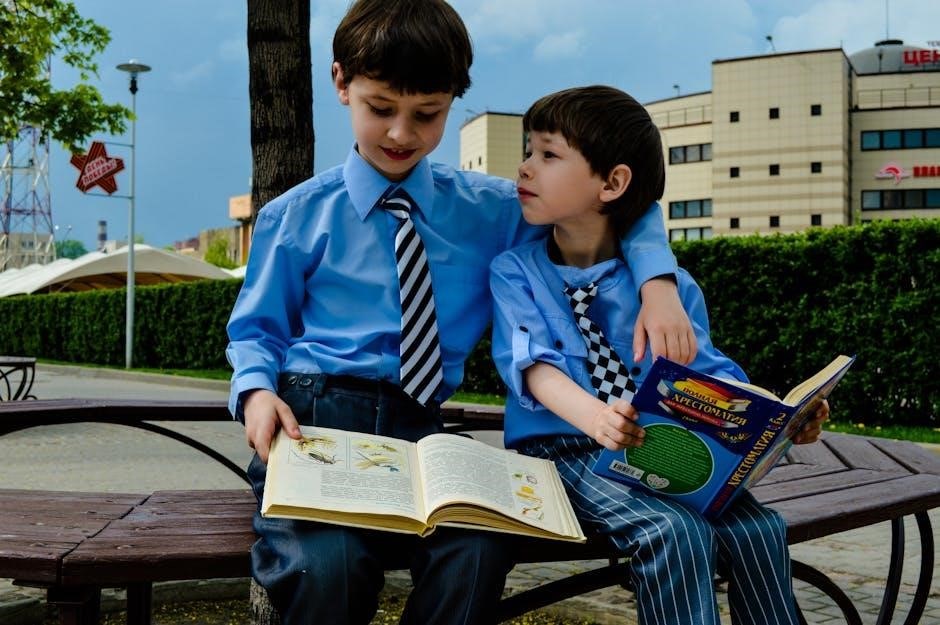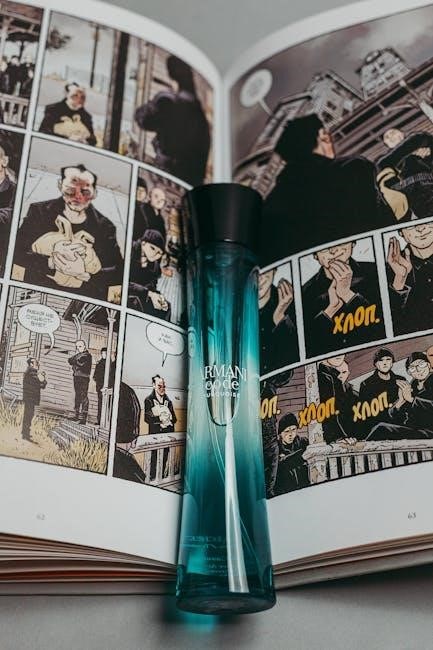The Boys is a gritty comic series by Garth Ennis and Darick Robertson, exploring a dark world where corrupt superheroes are monitored by a secret group. Known for its raw satire and graphic content, the series challenges traditional superhero narratives, offering a controversial yet compelling take on power and corruption. The Boys has gained a massive following and inspired a popular TV adaptation, further cementing its impact on modern pop culture.

Background of the Comic Book Series
The Boys comic book series, created by Garth Ennis and Darick Robertson, spans 72 issues across 12 volumes, published from 2006 to 2012. Initially by Wildstorm (DC Comics), it later moved to independent publication due to its controversial content.
2.1 Creation and Publication

The Boys was created by writer Garth Ennis and artist Darick Robertson, offering a dark, satirical take on superheroes. Initially published by Wildstorm Productions, an imprint of DC Comics, the series faced cancellation after the sixth issue due to controversial content. Ennis and Robertson regained the rights, allowing them to continue independently. The comic ran from 2006 to 2012, spanning 72 issues and 12 volumes. Its raw, unfiltered narrative and graphic content set it apart from traditional superhero comics, attracting a dedicated fanbase. The series has since been re-released in digital omnibus editions, featuring restored art and bonus materials, making it accessible to new readers while maintaining its edgy, subversive tone.
2.2 The World of The Boys

The Boys is set in a gritty, realistic world where superheroes, known as “supes,” are celebrated by the public but corrupted by their fame and power. These superpowered individuals are managed by Vought International, a powerful corporation that markets them as heroes while exploiting their abilities for profit. The world is heavily influenced by corporate greed, media manipulation, and public naivety, creating a toxic environment where superheroes are more focused on fame and wealth than on helping others. The government plays a minimal role in regulating these supes, allowing their corruption to thrive. This dark, satirical take on the superhero genre explores themes of power, corruption, and the dangers of unchecked authority. The Boys themselves operate in the shadows, aiming to expose and control the supes’ excesses, adding a layer of tension to this already volatile world.
2.3 Main Plot Overview
The Boys follows a group of vigilantes known as “The Boys,” who are tasked with monitoring and controlling corrupt superheroes, or “supes,” employed by the powerful corporation Vought International. Led by the enigmatic Billy Butcher, the team aims to expose the dark truths behind these superpowered individuals, who are more interested in fame, wealth, and power than in serving the public good. The story centers around the clash between The Boys and The Seven, Vought’s elite superhero team, led by the ruthless Homelander. As the series progresses, the conflict escalates, revealing deep-seated corruption, moral ambiguity, and the consequences of unchecked power. The narrative explores themes of revenge, loyalty, and the blurred lines between good and evil, all set against a backdrop of societal manipulation and corporate greed. The Boys’ mission to bring down the supes leads to violent confrontations and unexpected alliances, shaping a gripping and darker take on the superhero genre.
Characters and Teams in The Boys
The Boys comic features a diverse cast, including the vigilante group “The Boys,” led by Billy Butcher, and their rivals, “The Seven,” a corrupt superhero team manipulated by Vought International.
3.1 The Boys Team
The Boys are a covert group tasked with monitoring and controlling corrupt superheroes. Led by Billy Butcher, the team includes Hughie, a young recruit seeking vengeance, and Mother’s Milk, a skilled fighter. The Frenchman and The Female of the Species add unique abilities, while The Legend serves as a mentor. Each member has personal motives for opposing superheroes, creating a complex dynamic. Their actions are morally ambiguous, blurring the line between heroes and villains. The team’s operations are brutal and unrelenting, reflecting their distrust of superpowered individuals. Their mission is both a rebellion against corruption and a quest for justice, though their methods often raise ethical questions. The Boys’ camaraderie and shared purpose drive their relentless pursuit of accountability in a world dominated by flawed superhumans.
3.2 The Seven
The Seven are the main superhero team in The Boys, serving as the antithesis to the titular group. Led by the narcissistic and volatile Homelander, they are the public face of superheroics, endorsed by Vought International. Each member embodies exaggerated flaws: Queen Maeve, once a noble warrior, now struggles with her role; A-Train uses his speed for personal gain; and Black Noir remains a silent, deadly enforcer. The Seven’s public image as saviors contrasts sharply with their private corruption, marked by exploitation, abuse, and self-interest. Their actions are often reckless and destructive, yet they are shielded by corporate PR. The team’s dynamics are fraught with tension, as alliances are tested by power struggles and personal agendas. The Seven represent the dark underbelly of superhero culture, revealing how unchecked power leads to moral decay. Their role in the story highlights the comic’s critique of heroism and the dangers of unchecked authority. Their flaws make them both formidable and tragic figures in the narrative.
3.3 Other Key Characters
Billy Butcher, the leader of The Boys, is driven by a deep-seated hatred for superheroes, stemming from personal tragedy. His cunning and ruthlessness make him a formidable figure. Becca Butcher, Billy’s wife, plays a pivotal role in the story, her fate intertwining with the conflicts between The Boys and The Seven. Mother’s Milk (M.M.) is a skilled fighter and tactician, often the voice of reason within the group. The Frenchman and The Female of the Species are deadly operatives with unique abilities, enhancing The Boys’ effectiveness. The Legend, a former superhero turned whistleblower, provides crucial intel; Mallory Kessler and Susan Rayner are influential figures in the government and corporate sectors, shaping the power dynamics. These characters add depth and complexity to the narrative, each with their own motivations and conflicts. They collectively challenge the status quo, making them integral to the story’s progression and themes. Their interactions and development drive the plot forward, enriching the world of The Boys.

Themes and Tone in The Boys
The Boys explores themes of corruption, power abuse, and moral ambiguity through its dark, satirical lens. The comic critiques superhero culture, highlighting greed and exploitation, with graphic violence and mature themes challenging conventional narratives.
4.1 Deconstructing Superheroes
The Boys boldly deconstructs the traditional superhero narrative, presenting a world where superpowered beings are flawed, corrupt, and often self-serving. The series strips away the idealistic portrayal of superheroes, instead depicting them as celebrities driven by fame, wealth, and power. The Seven, a parody of iconic superhero teams, are shown as morally bankrupt individuals who exploit their abilities for personal gain. This deconstruction challenges the conventional notion of heroes as altruistic figures, instead revealing their darker, more human side. By exposing their flaws, the comic critiques the idolization of superheroes and the societal structures that enable their corruption. The Boys themselves, a vigilante group, serve as a counterbalance, highlighting the need for accountability in a world where power often goes unchecked. This theme resonates sharply, offering a biting commentary on hero worship and the dangers of unchecked authority. The series’ raw, unfiltered approach to these issues sets it apart from traditional superhero narratives.
4.2 Satire and Corruption
The Boys employs biting satire to expose the corruption inherent in a world where superheroes are commodities controlled by corporations. Vought International, a powerful conglomerate, markets these superpowered beings as heroes, masking their true nature. The series satirizes the exploitation of power, highlighting how superheroes use their abilities for personal gain, sexual exploitation, and political manipulation. The narrative mocks the superficiality of celebrity culture, portraying The Seven as self-absorbed icons more concerned with their public image than genuine heroism. The comic also critiques societal complicity, showing how the public blindly idolizes these flawed figures. Through exaggerated scenarios, The Boys delivers a scathing commentary on corporate greed, media manipulation, and the ethical decay of those in power. This satirical lens not only entertains but challenges readers to question the systems that allow corruption to thrive, making it a compelling and thought-provoking read. The series’ bold approach to these themes has been widely praised for its originality and unflinching honesty.
4.3 Violence and Controversy
The Boys is renowned for its graphic violence and controversial content, pushing boundaries with explicit depictions of gore, sexual themes, and morally ambiguous scenarios. The comic’s unflinching portrayal of brutality serves to underscore the corruption and moral decay of its characters, particularly the superheroes, who often engage in egregious acts of violence and exploitation. This visceral approach shocks readers, forcing them to confront the darker aspects of human nature and the consequences of unchecked power. The series does not shy away from controversial topics, including graphic sexual content and the exploitation of power, which has led to both acclaim and criticism. While some praise the comic’s boldness and refusal to sanitize its themes, others find the content excessive and off-putting. The creators’ refusal to compromise on their vision has made The Boys a polarizing yet memorable read, sparking debates about the role of violence and controversy in storytelling. Its impact is undeniable, leaving a lasting impression on readers.
Legacy and Adaptations
The Boys comic book has left a lasting impact, inspiring a successful TV adaptation on Amazon Prime. Its raw storytelling and controversial themes have resonated with audiences, solidifying its place in modern pop culture.
5.1 The TV Adaptation

The Boys comic book series was adapted into a highly successful TV show on Amazon Prime Video, premiering in 2019. The show has garnered widespread acclaim for its dark humor, gritty storytelling, and faithful adaptation of the comic’s themes. While it remains true to the original material, the series also introduces unique twists and expands on certain characters and plotlines. The TV adaptation has significantly boosted the popularity of the comic book series, attracting new fans and reigniting interest in the source material. The show’s success has also led to the creation of spin-offs and supplementary content, further solidifying The Boys as a cultural phenomenon. The fusion of the comic’s raw, satirical tone with the TV medium has proven to be a winning formula, ensuring its legacy in both print and screen.

5.2 Cultural Impact
The Boys comic book series has left a significant mark on popular culture, resonating with audiences for its bold, satirical take on superheroes. Its exploration of themes like power corruption, corporate greed, and the flaws of heroism has sparked widespread discussions and debates. The series’ unapologetic style and graphic content have challenged traditional superhero narratives, making it a cultural phenomenon. Its influence extends beyond comics, inspiring analysis in social media, podcasts, and academic circles. The comic’s success has also led to a shift in how superhero stories are perceived, encouraging creators to explore darker, more realistic themes. With its global fanbase and translations into multiple languages, The Boys has cemented its place as a groundbreaking work in modern comic book history, continuing to inspire new generations of readers and creators alike;

